Search Results
Showing results 21 to 40 of 49
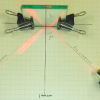
Mirror, Mirror
Source Institutions
In this activity, learners test the Law of Reflection based on experimental evidence. Learners produce raw data and explanations based on their data: pencil tracings of incident and reflection rays.
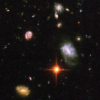
Telescopes as Time Machines
Source Institutions
This fun, nighttime hands-on astronomy activity lets learners explore how long it takes for light from different objects in the universe to reach Earth.
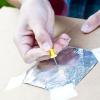
Measure the Sun's Size
Source Institutions
In this activity, learners make their own pinhole viewer in order to measure the size of the sun.
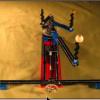
LEGO Orrery
Source Institutions
Use this model to demonstrate the goal of NASA's Kepler Mission: to find extrasolar planets through the transit method.
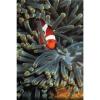
Underwater Hide and Seek
Source Institutions
In this activity, learners experience firsthand how marine animals' adaptive coloration camouflages them from prey.
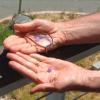
Exploring Ultraviolet (UV) light from the Sun
Source Institutions
In this outdoor activity, learners explore UV rays from the Sun and ways to protect against these potentially harmful rays.
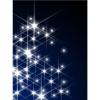
Hot Air
Source Institutions
In this activity, learners set up an experiment to investigate the effects of hot air on the path of a laser beam.

Terrestrial Hi-Lo Hunt
Source Institutions
In this outdoor activity, learners search for the warmest and coolest, windiest and calmest, wettest and driest, and brightest and darkest spots in an area.
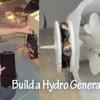
Build Your Own Hydroelectric Generator
Source Institutions
Learners follow directions to construct a water-powered electrical generator using a turbine made from plastic spoons.

Wintergreen
Source Institutions
In this outdoor, winter activity, learners find living green plants under the snow and determine the light and temperature conditions around the plants.
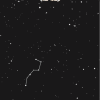
Constellation Detective
Source Institutions
In this quick activity, learners practice locating a constellation in a map of very dark skies.
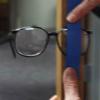
Make Your Own Telescope
Source Institutions
Discover how a refracting telescope works by making one from scratch using common items. This telescope won't have a tube so the learner can see how an image is formed inside the telescope.
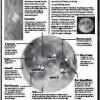
Observing the Moon
Source Institutions
Use this Moon Map Guide to help learners identify features on the Moon, while looking through a telescope.
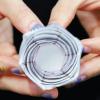
Space Origami: Make Your Own Starshade
Source Institutions
In this activity, learners cut out and fold their own collapsible origami starshade, an invention that shields a telescope's camera lens from the light of a distant star so that NASA scientists can ex
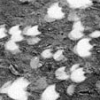
How to View a Solar Eclipse
Source Institutions
This is an activity to do when there is a solar eclipse!

The Thousand-Yard Model
Source Institutions
This is a classic exercise for visualizing the scale of the Solar System.
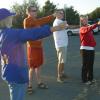
Does the Moon Rotate?
Source Institutions
This fun and simple hands-on astronomy activity lets learners make 3-dimensional models of the Earth and Moon.
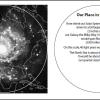
Our Place in Our Galaxy
Source Institutions
In this fun and simple hands-on astronomy activity, learners construct a model of our place in the Milky Way Galaxy and the distribution of stars, with a quarter and some birdseed.
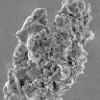
Properties of Dust
Source Institutions
In this activity, learners carry out a scientific investigation of dust in their classroom. Learners produce an analysis on graph paper of the dust they collect over the course of a few days.
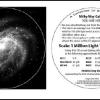
A Universe of Galaxies: How is the Universe Structured?
Source Institutions
This fun hands-on astronomy activity lets learners explore models of the Milky Way and other galaxies to get a sense of relative distances to other galaxies.
